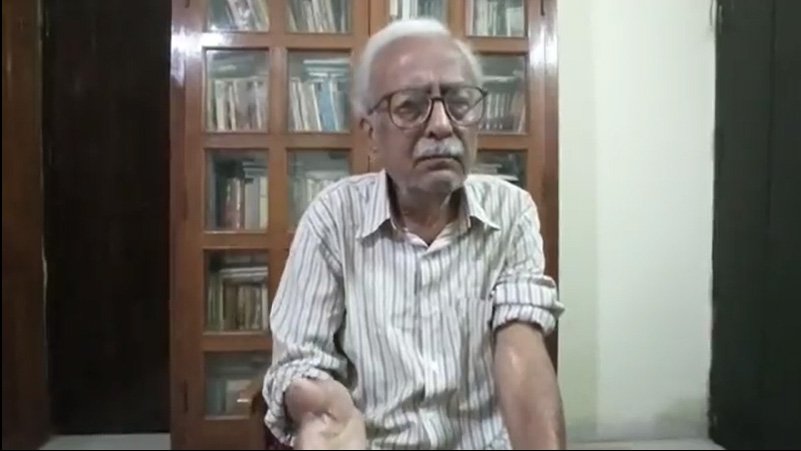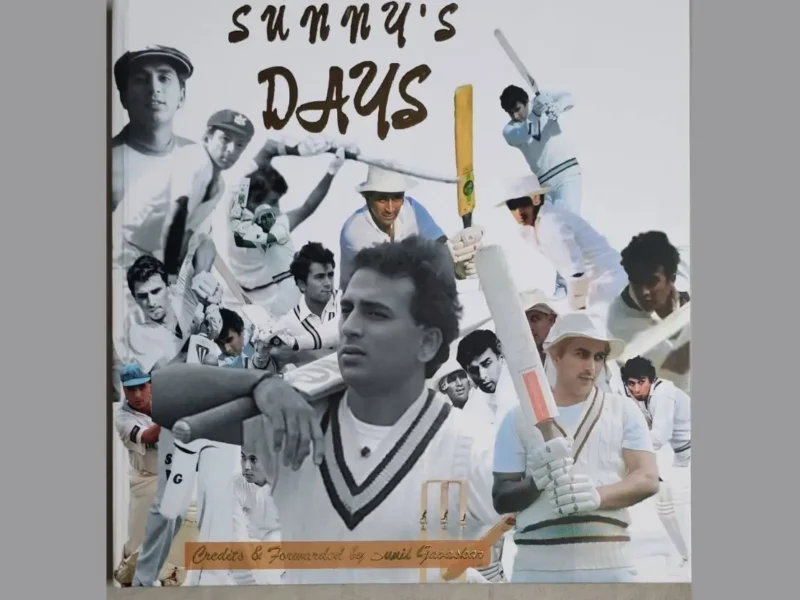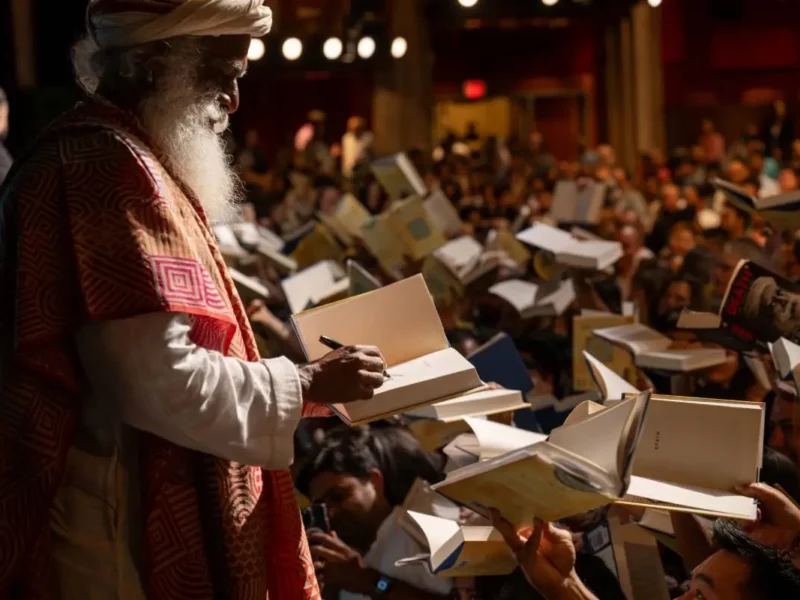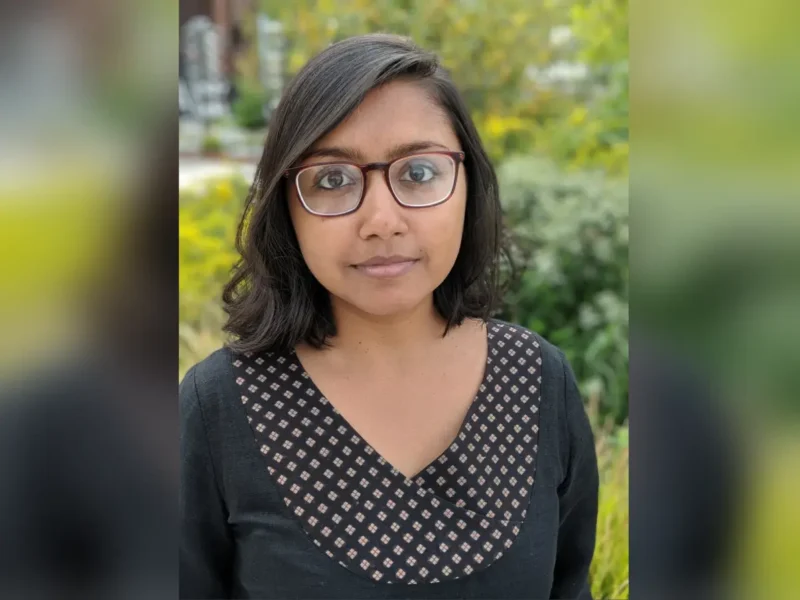
Come, Fall In Love With The Poetry Of Vinod Kumar Shukla
By Jyoti Bachani
Even as everyone was celebrating India and Indians at the Oscars, I am celebrating one of my all-time favorite Hindi writers and poet who was conferred with the PEN/Nabokov Award for Achievement in International Literature. This prestigious award recognizes the excellence of an author’s body of work for its enduring originality and consummate craftsmanship. He has won several literary awards before, including the Sahitya Akademi award, in 1999, for best Hindi work for his book Deewar Mein Ek KhirkeeRahatiThi (A Window lived in a Wall).
I fell in love with the very first poem I heard, on Hindi Kavita on YouTube, read by Manav Kaul. Its opening line is Hatasha se ek vuyaki baith gayatha. I translated it in August 2015 and shared it on a blog. I have read it in Hindi and English, in London at the Poet’s Church, at the San Francisco LitQuake, my professional conferences and in my poetry group, The Poetry of Diaspora in Silicon Valley. I finally published it in the journal of Organizational Aesthetics. I return to his words as one likes to visit old friends. He is an octogenarian living in India, and did not travel to the US to receive this award. Maybe you can guess who he is?
His name is Vinod Kumar Shukla. By reading and translating some of his poems, I feel understood and know where I belong. No matter what mood or state of mind I am in, when I pick up a book to read his poems, I feel seen, heard, made whole, and find my mojo or know myself better. My Hindi is limited to what I learned growing up in Delhi. Having lived in English-speaking countries all my adult life, that is mostly what I speak. Yet, his work is accessible as he has many poems in simple Hindi, used masterfully to convey the most profound ideas with the beauty of a close enough observation of the realities of everyday life.
His life as a retired family man rooted in Chhattisgarh, India is likely very different from my life as a single working woman with a corporate gypsy lifestyle in Silicon Valley, and yet, reading his poems makes me feel that he knows me and my life better than anyone else. This fan girl enthusiasm is to the extent that I often feel that he might as well have shared the same lived experiences that I have here. Maybe the explanation to this is that I only like those poems where he reflects the same values that I hold dear.
Like Trishanku, the mythological character suspended between heaven and earth, immigrants often feel suspended between their country of birth and their adopted country. This category defying in-betweenness is embraced by Vinod Kumar Shukla as the most normal thing. Here is a short poem by him.
आकाश से उड़ता हुआ
आकाश से उड़ता हुआ
एक छोटा सा हरा तोता
(गोया आकाश से
एक हरा अंकुर ही फूटा है.)
एक पेड़ में जाकर बैठ गया.
पेड़ भी ख़ूब हरा भरा था.
फ़िर तोता मुझे दिखाई नहीं दिया
वह हरा भरा पेड़ ही दिखता रहा.
Flying through the sky
flying through the sky
a small green parrot
(as if the sky has
sprouted a green shoot)
goes to sit on a tree.
the tree is also lush green.
then I cannot see the parrot
only the lush green tree.
The image of a bird disappearing into the tree is familiar to all. The idea of a shoot sprouting in the sky is so original. The oneness of the parrot with the tree is so rooted in the Indian philosophical tradition of oneness of all things, with the soul/atma and supreme-being/ paramatma being part of the same light, as a candle has the same luminous flame as the light from the Sun. By seeing how the green parrot disappears into a green tree to become it, the poet reminds us that we belong and have a place within Mother nature, not separate from it, but one with it, if we can be it.
From my reading of Vinod Kumar Shukla’s poetry he seems to have a deep kinship with nature that is the root of his ease with paving his own path, with beautiful expression in the most original way, unafraid of judgement from the manmade worldly systems. If anything, his poems awaken the readers to see the existing world afresh, from his imaginative presentation of it, so everyone cam discover their own harmony and belonging to their nature as part of Mother nature. He is comfortable with not-knowing, with a certain clam to embrace the transient as naturally as he holds the vision for the eternal. I hope many new readers will discover Vinod Kumar Shukla’s work. My tip to the reader is to stay with his words the way you might stay with an abstract painting, to discover all the possibilities it might contain. I pray that the poems will reveal their multiverses to everyone, everywhere but not all at once. For the young readers, you can order his children’s books to get them started early.
Dr. Jyoti Bachani is a management Professor at Saint Mary’s College of California. She is a former Fulbright Senior Research Scholar, with degrees from London Business School, Stanford University, and St. Stephen’s College. She has edited two poetry anthologies and one special poetry issue of Organizational Aesthetics.




